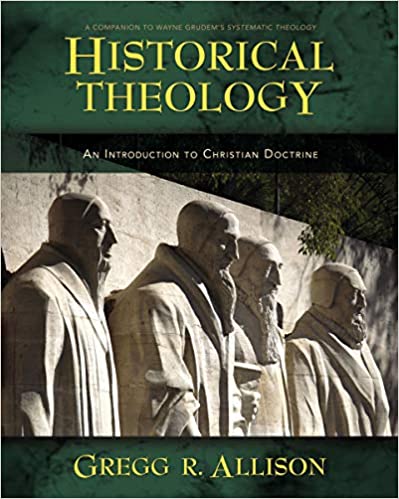A Brief Chapter Summary from Books At a Glance
By Benjamin Montoya
About the Author
Gregg Allison (PhD) is Professor of Christian Theology at The Southern Baptist Theological Seminary in Louisville, Kentucky where he teaches systematic theology. Previously he served on Cru staff at the University of Notre Dame and overseas in Italy and the Italian-speaking region of Switzerland. He is a pastor of Sojourn Community Church, and is the theological strategist for Sojourn Network, a church planting network of about thirty churches. He is the author of Historical Theology: An Introduction to Christian Doctrine; Sojourners and Strangers: The Doctrine of the Church; and Roman Catholic Theology and Practice: An Evangelical Assessment.
Statement of Belief
When it comes to considering the history of the doctrine of justification, we need to begin by understanding what the doctrine is. Our focus will be to answer the following question: “How has the church come to understand how and when people gain right legal standing before God?” Historically, Christians have affirmed this doctrine—that God justifies the ungodly because of Christ. But, how they understand it has changed considerably throughout the last 2000 years.
Early Church
To understand the position of the Early Church, we need to begin with the NT itself. Jesus addressed the topic of justification in several places, focusing on the difference between who was justified and who was not (Matt. 12: 33– 37; Luke 18: 9– 14). Paul detailed the relationship between the law, justification, and faith in key texts like Romans 3:21–28.
The Early Church Fathers explained this doctrine; Clement of Rome writes, “having been called through his [God’s] will in Christ Jesus, [we] are not justified through ourselves or through our own wisdom or understanding or piety or works which we have done in holiness of heart, but through faith, by which the almighty God has justified all who have existed from the beginning.” There is a clear affirmation of the position of Christ and Paul in what Clement had to say.
Likewise, the Letter to Diognetus has an important reference to this doctrine: “For what else but his righteousness could have covered our sins? In whom was it possible for us, the lawless and the ungodly, to be justified, except in the Son of God alone? O the sweet exchange, O the incomprehensible work of God, O the unexpected blessings, that the sinfulness of many should be hidden in one righteous man, while the righteousness of one should justify many sinners!”
Augustine also wrote about this doctrine. He championed the view of justification of divine grace through faith alone. Augustine explains,
Everyone who is incorporated into him [Christ] and made a member of his body is able, by God giving the increase within, to work righteousness…. The righteousness of the law is proposed in these terms— that whoever does it will live in it. And the purpose is that when each [person] has discovered his own weakness, he may not by his own strength, nor by the letter of the law (which cannot be done), but by faith, satisfy the Justifier, attain, do, and live in it. For the work in which he who does it will live, is not done except by the one who is justified. His justification, however, is received by faith…. Accordingly, as the law is not made void, but is established by faith, since faith obtains grace by which the law is fulfilled; so free will is not made void through grace, but is established, since grace heals the will by which righteousness is freely loved.
Part of the reason why Augustine defined the doctrine as clearly as he did was because of his interactions with the teaching of Pelagius who had completely redefined grace. The Church officially condemned the teachings of Pelagius primarily based on the work of Augustine. The church also took a stand at the Synod of Orange in 529 against semi-Pelagian that tries to argue that the human will initiates the request for grace, the wish for forgiveness of sins, and the desire to believe. . . .
[To continue reading this summary, please see below....]The remainder of this article is premium content. Become a member to continue reading.
Already have an account? Sign In
